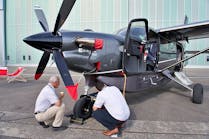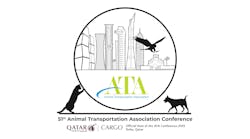ASTM and General Aviation Manufacturers Association Sponsor Brussels Workshop
W. CONSHOHOCKEN, Pa., September 29, 2014—Both the European Commission and the European Aviation Safety Agency (EASA) have endorsed a global initiative to modernize the way smaller airplanes are certified. The initiative, “CS23/Part 23 Reorganization,” will lead to the world’s aviation authorities each modernizing their own certification rules. The initiative is based on 16 draft standards currently being developed by ASTM International Committee F44 on General Aviation Aircraft.
A description of CS23/Part 23 Reorganization was presented at “Shaping the Future of General Aviation Products in Europe,” a workshop hosted by ASTM and the General Aviation Manufacturers Association (GAMA) in Brussels, Belgium, on Sept. 16. The purposes of the initiative are cutting the cost and increasing the safety of general aviation airplanes and technology. More than 90 aviation industry representatives, including many members from ASTM Committee F44, attended the session.
“As the European general aviation community looks for a better approach to regulation, the European Commission and the European Aviation Safety Agency have identified the work of ASTM F44 to be a key component in the revitalization of general aviation in Europe,” says Gregory J. Bowles, director, European regulatory affairs and engineering, General Aviation Manufacturers Association.
Speakers at the workshop included Filip Cornelius, head of the air safety unit of the European Commission, which oversees EASA; and Yves Morier, recently appointed head of the general aviation division of EASA. Cornelius and Morier each emphasized how the initiative is indicative of Europe’s new approach to regulating aviation, particularly through global cooperation.
“ASTM International is fortunate to count more than 1,500 European members from different industries,” says Sara Gobbi, ASTM director of EU Affairs. “For those active in the general aviation industry, the Brussels workshop was an excellent opportunity to meet with their international peers and reaffirm the importance of using globally recognized technical standards to meet their needs.”
ASTM International welcomes participation in the development of its standards. For more information on becoming an ASTM member, visit www.astm.org/JOIN.
ASTM International is one of the world’s largest development and delivery systems of standards and related products and services. ASTM International meets the World Trade Organization (WTO) principles for the development of international standards: coherence, consensus, development dimension, effectiveness, impartiality, openness, relevance and transparency. ASTM standards are accepted and used in research and development, product testing, quality systems and commercial transactions.
For more news in this sector, visit www.astm.org/sn-transportation or follow us on Twitter @ASTMTransport.

